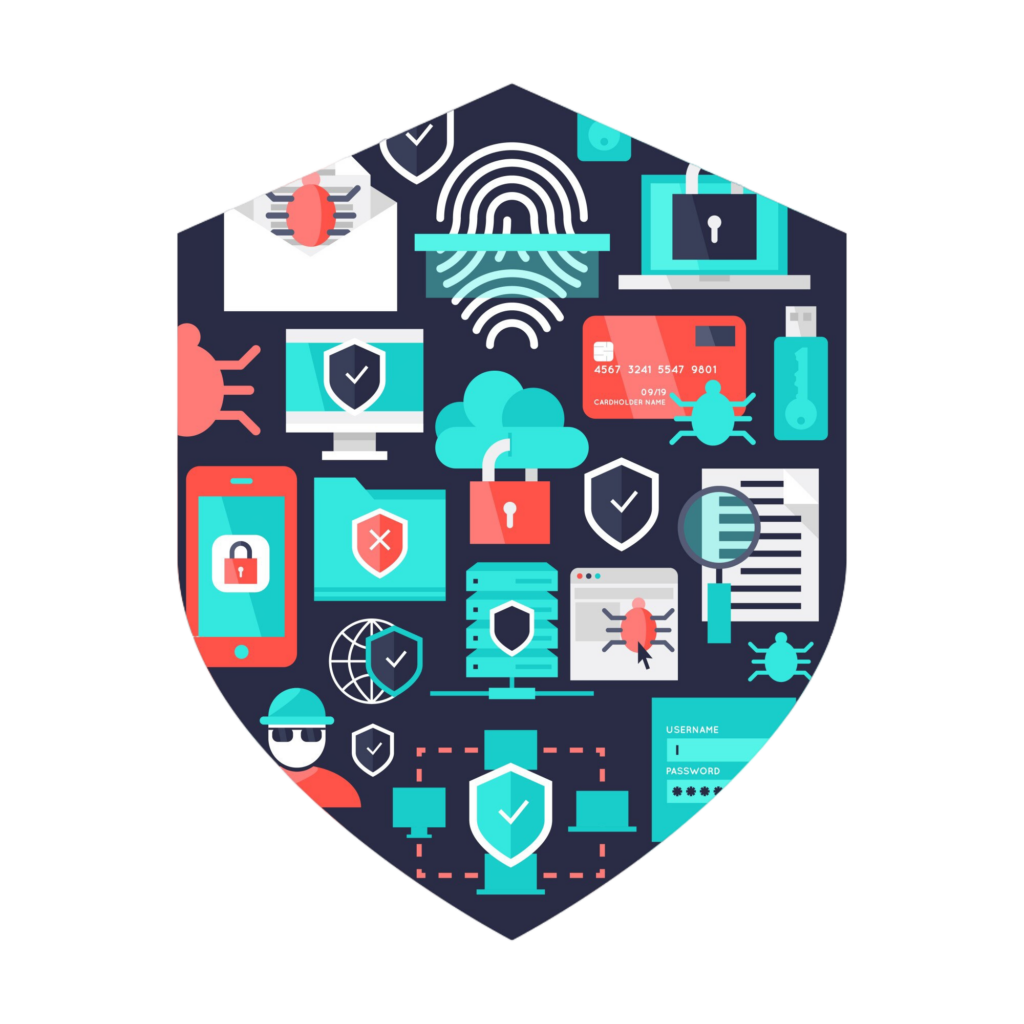
Cyber security is extremely important in today’s digital age, especially for businesses that heavily rely on technology. With cyber threats becoming more frequent and sophisticated, it’s crucial for businesses to prioritize protecting their digital assets.
At Kalp Systems, we understand how vital cyber security is for businesses. As a trusted provider of comprehensive cyber security solutions, we offer various services designed to keep your business safe. From network security to data protection, our team of experts is committed to ensuring the safety and integrity of your systems.
In this article, we’ll explore the top cyber security tools that every business needs in 2024. These tools are essential for reducing risks, detecting and preventing cyber attacks, and safeguarding sensitive data. By using these tools, you can strengthen your business’s ability to withstand evolving cyber threats and maintain a secure digital environment.
The Impact of Cyber Threats on Small Businesses
Small businesses are increasingly becoming prime targets for cyberattacks, with statistics indicating a disproportionate level of targeting compared to larger enterprises. According to the 2023 Data Breach Investigations Report by Verizon, 43% of cyberattacks were aimed at small businesses. These attacks can have devastating consequences, including financial losses and reputational damage.
The aftermath of a data breach can lead to significant financial strain, with costs associated with legal fees, regulatory fines, and potential lawsuits. Moreover, the loss of customer trust and confidence can have long-term repercussions on the business’s reputation.
Why Small Businesses Need Strong Cybersecurity
The urgent need for robust cybersecurity measures in small businesses cannot be overstated. Without adequate protection, these enterprises remain vulnerable to a myriad of cyber threats that could potentially cripple their operations.
- Small businesses often lack the resources and expertise to implement comprehensive security measures.
- Cybercriminals view them as easy targets due to their weaker security defenses.
- The interconnected nature of today’s digital landscape means that a breach in one small business can have ripple effects on its customers, suppliers, and partners.
Benefits of Implementing Effective Cybersecurity Measures
Implementing effective cybersecurity measures is crucial in safeguarding sensitive data, maintaining business continuity, and preserving the trust of customers and partners.
- Protecting Sensitive Information: Robust security measures such as encryption and access controls help prevent unauthorized access to valuable data like customer information, financial records, and trade secrets.
- Preventing Disruption: Proactive monitoring, regular software updates, and employee training can reduce the risk of malware infections or system breaches that could disrupt day-to-day operations.
- Building Trust: Demonstrating a commitment to cybersecurity through certifications or third-party audits can instill confidence in customers and partners who entrust their data or rely on your services. For instance, the Federal Trade Commission provides resources on protecting personal information.
- Complying with Regulations: Many industries have specific data protection regulations that small businesses must adhere to. Implementing cybersecurity measures ensures compliance and avoids potential penalties. Kalp Systems offers guidance on baseline cybersecurity controls for small and medium organizations.
Understanding the severity of cyber threats and their potential impact on small businesses underscores the critical importance of prioritizing cybersecurity measures to mitigate risks effectively. The Cybersecurity and Infrastructure Security Agency (CISA) also provides valuable insights into cybersecurity best practices that can be implemented by small businesses.

Understanding Cloud Network Security
Cloud-based technology has become an integral part of modern business operations. The convenience and scalability of cloud environments have led to their widespread adoption across industries. However, these environments also present unique security challenges that businesses need to address. In this section, we will explore the concept of cloud-based technology and the importance of cloud network security measures.
Cloud-based technology
Cloud computing allows businesses to store and access data and applications over the internet, eliminating the need for on-premises infrastructure. This technology offers numerous benefits, including cost savings, flexibility, and scalability.
Security challenges in cloud environments
While cloud technology offers many advantages, it also brings specific security risks. These include:
- Data breaches: Cloud environments may be targeted by cybercriminals seeking to gain unauthorized access to sensitive data.
- Insider threats: Malicious insiders or employees with compromised credentials can exploit vulnerabilities in cloud systems.
- Compliance issues: Organizations must ensure that their cloud infrastructure meets industry-specific compliance requirements for data protection and privacy.
- Lack of visibility and control: As data and applications are hosted remotely, businesses may have limited visibility and control over their security posture.
To mitigate these risks, businesses must prioritize cloud network security measures. These measures aim to protect data, applications, and systems hosted in the cloud from unauthorized access, data breaches, and other malicious activities.
Best practices for cloud network security
- Implement strong access controls: Use multi-factor authentication (MFA) and enforce strict user access policies to prevent unauthorized access to cloud resources.
- Encrypt data: Encrypt sensitive data both at rest and during transmission to safeguard it from interception or theft.
- Regularly update and patch systems: Keep your cloud infrastructure up-to-date with the latest security patches to protect against known vulnerabilities.
- Monitor network traffic: Deploy intrusion detection systems (IDS) and intrusion prevention systems (IPS) to detect and respond to suspicious activities within your cloud environment.
- Conduct regular security audits: Perform routine audits and assessments to identify and address any gaps or vulnerabilities in your cloud network security.
By implementing these measures, businesses can enhance the security of their cloud-based operations and protect their valuable data and resources.

The Top Cyber Security Tools Every Business Needs in 2024
In the rapidly evolving landscape of cyber threats, businesses are increasingly turning to advanced cybersecurity tools to protect their digital assets. As the technological capabilities of cybercriminals continue to grow, it’s essential for businesses to stay ahead of the curve by investing in robust security solutions. Here are some of the top cybersecurity tools every business needs in 2024:
1. Antivirus Software
Antivirus software plays a critical role in safeguarding business systems from malware infections. By continuously scanning for known malware signatures and behavioral patterns, antivirus software can detect and remove malicious programs that could compromise sensitive data.
It’s crucial for businesses to invest in antivirus software with advanced threat detection capabilities that extend beyond traditional signature-based scanning. Look for solutions that offer real-time protection, heuristic analysis, and sandboxing features to proactively identify and neutralize emerging threats.
By implementing a robust antivirus solution, businesses can fortify their defense against a wide range of cyber threats and minimize the risk of costly data breaches and system compromises.
2. Encryption
Encryption plays a crucial role in safeguarding sensitive data from unauthorized access during storage and transmission. It is an essential cybersecurity tool that every business should consider implementing to enhance their overall security posture.
Here are some key points about encryption:
- Data Protection: Encryption transforms data into unreadable ciphertext, making it meaningless to anyone without the decryption key. This ensures that even if an attacker gains unauthorized access to the data, they won’t be able to decipher it.
- Secure Communication: Encryption is vital for securing communication channels, such as emails and instant messaging. By encrypting the data before transmission, businesses can prevent eavesdropping and protect confidential information.
- Compliance with Regulations: Many industries have regulations in place that require businesses to implement encryption for sensitive data. For example, the healthcare industry must comply with the Health Insurance Portability and Accountability Act (HIPAA), which mandates the use of encryption for protected health information.
- End-to-End Encryption: End-to-end encryption ensures that data remains encrypted throughout its journey, from the sender to the recipient. This prevents intermediaries or service providers from accessing or tampering with the data.
- Secure Storage: Encryption is crucial for securing data at rest, such as stored files and databases. By encrypting data on servers or in the cloud, businesses can mitigate the risk of data breaches or unauthorized access.
In summary, encryption is a vital cybersecurity tool that protects sensitive data from unauthorized access during storage and transmission. Businesses should prioritize implementing encryption solutions to enhance their overall security posture and comply with industry regulations.
3. Firewall
Firewalls play a critical role in safeguarding business networks by monitoring and controlling incoming and outgoing traffic. Here are some key points to consider:
- Firewalls act as a barrier between your internal network and the internet, filtering traffic to prevent unauthorized access and potential security threats. You can learn more about it here.
- They can be implemented as hardware or software, inspecting data packets and determining whether to allow or block them based on pre-established security rules. For a detailed definition, you can refer to this TechTarget article.
- Application-layer firewalls provide deeper inspection of network traffic, offering enhanced protection against advanced cyber threats.
- Next-generation firewalls integrate additional features such as intrusion prevention systems (IPS) and antivirus protection, providing comprehensive defense mechanisms for businesses. You can find more information on this topic here.
By implementing robust firewall solutions, businesses can effectively fortify their cyber defenses and mitigate the risks associated with unauthorized access and cyber attacks.
4. Virtual Private Network (VPN)
Virtual Private Networks (VPNs) are essential cybersecurity tools that businesses should consider implementing to enhance their overall security posture. VPNs provide a secure and encrypted connection between a user’s device and the internet, ensuring that all data transmitted is protected from unauthorized access. Here are some key points about VPNs:
Securing Remote Connections
One of the primary functions of a VPN is to secure remote connections. With the increase in remote work, employees often access sensitive company resources from various locations. A VPN encrypts network traffic, making it unreadable to anyone who might intercept it. This ensures that even when employees connect to public Wi-Fi networks or other unsecured networks, their data remains protected.
Masking IP Address
A VPN masks the user’s IP address by routing their internet traffic through a server located in a different location. This makes it difficult for anyone to track the user’s online activities or identify their physical location. By hiding the IP address, VPNs provide an additional layer of anonymity and privacy.
Bypassing Geographical Restrictions
Some businesses operate globally and may encounter restrictions on accessing certain websites or online services based on geographical location. VPNs allow users to bypass these restrictions by connecting to servers located in different countries. This enables businesses to access region-restricted content and services, facilitating smoother operations.
Secure Data Transfer
With a VPN, businesses can securely transfer sensitive data between different locations or branches. The encryption provided by VPNs ensures that data remains confidential during transmission, protecting it from potential interception or tampering.
By implementing a reliable VPN solution like those explained in this article, businesses can significantly enhance their cybersecurity defenses and protect their digital assets from unauthorized access or exposure. It is important to choose a reputable VPN provider that offers strong encryption protocols, a wide range of server locations, and user-friendly interfaces for seamless integration into existing systems.
Key Takeaway: VPNs play a crucial role in securing remote connections and protecting sensitive data. By encrypting network traffic and masking IP addresses, VPNs provide businesses with enhanced privacy, anonymity, and the ability to bypass geographical restrictions. Implementing a reliable VPN solution is essential for businesses looking to strengthen their overall security posture.
5. Multi-factor Authentication (MFA)
Advocate for the use of MFA as an additional layer of protection for user accounts, requiring multiple credentials for login.
Multi-factor authentication (MFA) is a crucial tool in enhancing the security of user accounts. It adds an extra layer of protection by requiring users to provide multiple credentials to access their accounts. By combining two or more authentication factors, such as something the user knows (password), something they have (security token), or something they are (biometric data), MFA significantly reduces the risk of unauthorized access.
Here are some key points to consider about MFA:
- Enhanced Security: MFA provides a higher level of security compared to traditional single-factor authentication methods. Even if one factor, such as a password, is compromised, the additional factors act as a barrier against unauthorized access.
- Protection Against Credential Theft: With the increasing prevalence of data breaches and password leaks, using MFA helps prevent unauthorized individuals from gaining access to user accounts even if passwords are exposed.
- Flexible Authentication Methods: MFA supports various authentication methods, including SMS codes, email verification, biometrics (fingerprint or facial recognition), hardware tokens, and authenticator apps. This flexibility allows businesses to choose the most suitable method based on their specific needs and user preferences.
- User-Friendly Experience: While adding an extra step to the login process, MFA can be seamlessly integrated into existing systems and applications. Many popular platforms and services already offer built-in MFA options, making it convenient for users to enable this additional security measure.
By implementing multi-factor authentication, businesses can significantly enhance their overall security posture and protect sensitive data from unauthorized access. It is an essential tool that every business should consider incorporating into their cybersecurity strategy.
Kalp Systems, a trusted provider of comprehensive cyber security solutions, can assist businesses in implementing robust multi-factor authentication measures to strengthen their security defenses.
Remember, cyber threats are evolving, and it is crucial to stay proactive in protecting your digital assets.
Conclusion
The world of cyber threats is always changing, and it poses big dangers to businesses of all sizes. As technology gets better, so do the tricks that cybercriminals use, which means that businesses need to make cyber security a top priority. The potential financial and reputational harm caused by data breaches show just how important it is to have strong cyber security plans in place.
By using the best cyber security tools mentioned in this article, businesses can be proactive in protecting their digital assets and reducing the impact of cyber threats. These tools, like antivirus software, encryption, and multi-factor authentication, provide important layers of defense against many different types of threats. It’s also crucial for businesses to prioritize cloud network security since so much of today’s business operations rely on cloud-based technology.
As businesses deal with the complexities of cyber security, it’s essential to stay updated on the latest tools and strategies that are available. By taking a comprehensive approach to cyber security, which includes using advanced tools and following best practices, businesses can improve their ability to withstand cyber threats and keep their valuable data safe.